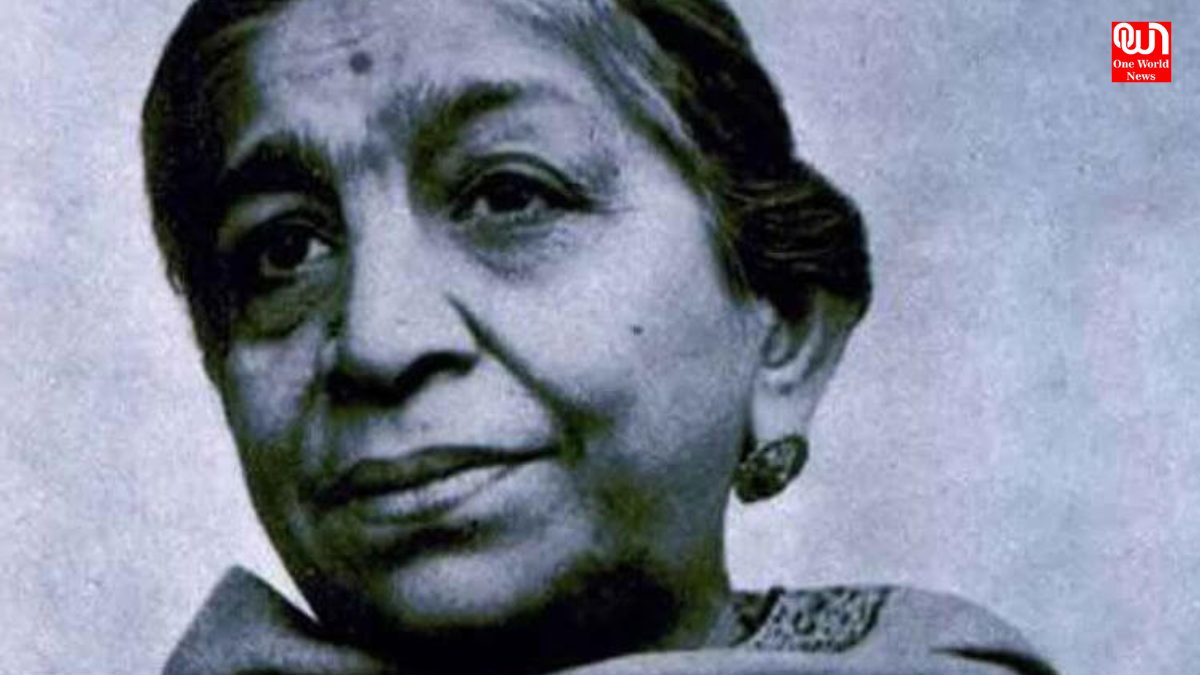Sarojini Naidu: The Nightingale of India and Her Enduring Legacy in Literature and Politics
Sarojini Naidu, the Nightingale of India, was a renowned poet, freedom fighter, and social reformer whose legacy continues to inspire generations.
The Life and Legacy of Sarojini Naidu: The Nightingale of India, Her Contributions to Literature, Politics, and Women Empowerment

She is known as “The Nightingale of India.” Renowned poet, freedom fighter, and even the first woman president of the Indian National Congress are just a few prominent descriptions for Sarojini Naidu. Born on February 13, 1879, in Hyderabad, she soon became a prominent figure in India’s struggle for freedom. Contributions to literature and politics were her ways of finding her place in the annals of Indian history. Her lyrical style of poetry and impassioned speech-making and strong commitment to social causes made Sarojini Naidu’s legacy enduring enough to inspire the generations still going.
Early Life and Education: A Scholar at Heart
Sarojini Naidu was born into a family of highly educated and politically aware parents. Her father, Aghorenath Chattopadhyay, was a scientist and philosopher and her mother, Barada Sundari Devi, was a poetess. Naidu was a child prodigy who, at the age of 13, started penning her first poems. At 16, she set off for England to pursue education there, where she studied at King’s College London and Girton College, Cambridge. Thus, Naidu’s interaction with Western literature during her sojourn in England goes into the limelight and becomes really significant in creating an influence on her style of poetry, which would henceforth be a krida of both Eastern as well as of Western literary traditions.
Literary Career: Voice of Beauty and Social Change
This young author, Sarojini Naidu, soon gained popularity through her poetry at a pretty young age. Her first collection of poems, In the Bazaars of Hyderabad, in 1912, instantly became hits with rich imagery and vivid description of Indian culture. Her poetics was written in the English language and was based on Indian folklore as well as the landscapes of India-mostly carrying themes of love, nature, and patriotism.
Her great poems, such as the Palanquin Bearers, The Gift of India and In the Forest, are very dear for their musicality, emotionality, and brilliant and graphic descriptions of both beauty and struggle in India. Naidu’s work was both aesthetically appealing and conveyed deep empathy with the social, political, and emotional sufferings of those times.
Read more: Creative Ideas to Celebrate Children’s Day 2024: Making November 14 Extra Special for Your Kids
Political Involvement: A Leader for India’s Freedom
It was at the moment when Sarojini Naidu emerged strongly in the fight for India’s independence. She began as a social reformer and eventually collaborated with the great leaders such as Gopal Krishna Gokhale, Lala Lajpat Rai, and Mahatma Gandhi. Her role in the freedom movement emerged because she felt the pain of the poor people of India, especially the women and children.
Naidu was an eloquent orator and inspired tens of thousands of Indians to involve themselves with the freedom movement. A powerful member of the Indian National Congress, she was the first woman president of the Indian National Congress in 1925. She became the governor of United Provinces (now Uttar Pradesh), the first woman in independent India to hold a gubernatorial post.
Struggles and Triumphs: Success Over Adversity
Sarojini Naidu lived in a patriarchal society as a woman; indeed, various challenges she encountered during her life. She was both a very accomplished poet and an influential political leader who was judged by many societal standards for being a woman in the public sphere. Naidu never lost her dignity despite all these challenges. She moved on with her identity as a woman and used her position to voice support for women’s rights. It included the right to vote and participate in politics.
Naidu was very sensitive about the fate of poor downtrodden in the Indian sub-continent. She immensely laboured for the social reforms of that era, particularly for the betterment of women, children, and the down-trodden, and, even with her influence, addressed the social ills of the nation.
Read more: Exciting Thanksgiving Games for Families: Fun Ideas for All Ages to Enjoy Together
Legacy: The Nightingale That Made a Difference
Despite having died on March 2, 1949, Sarojini Naidu’s legacy lives on. She made a niche for herself not only in literature but also in the freedom struggle that is a part of India’s heritage. This iconic ballad-nurturing symbol of courage, resilience, and beauty remains amidst words turned into anthems through poetry. As a leader, she inspired countless fighters for equality and justice.
Sarojini Naidu-the name itself seems to come alive, echoing consistency in her cause for India’s independence and her role in social change advocacy. She remains an icon of hope, especially to women, trying to do something and making their mark on the world. Today, it’s all not just a memory of a poet and politician but that of a beacon of women’s empowerment and a true patriot who spent her entire life selflessly for her country.
Conclusion: Salute to Her Legacy
The literary, political, and social contributions of Sarojini Naidu have left a forever etched mark on the Indian society. The poetic genius coupled with a passion for social reform has impacted the posterity of India in ways no one could have ever thought of. The Nightingale of India stands as an icon of cultural and political change that tells us that only through the pen and voice can any difference be made in the world.
We’re now on WhatsApp. Click to join.
Like this post?
Register at One World News to never miss out on videos, celeb interviews, and best reads.








